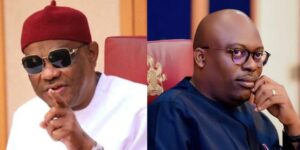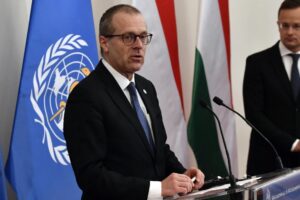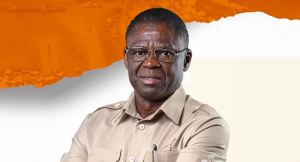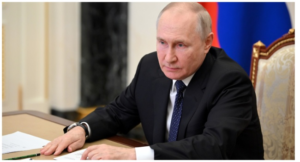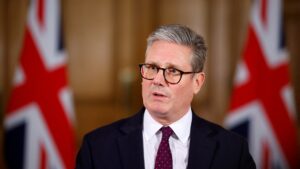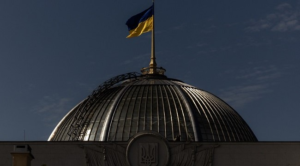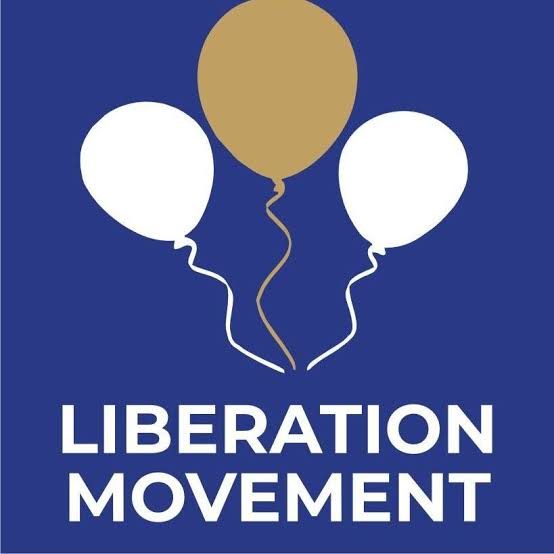
The Liberation Movement has called on the nation’s ruling government to begin to see education and healthcare as rights for every Nigerian, not as commodities to be purchased from government and private business owners.
The party made the call at the backdrop of the ruling government’s failure to adequately budget for the two critical sectors in the recently presented 2020 budget by President Mohammadu Buhari.
In a statement issued by Bar. Dalan Cbn Dalan, the Acting National Publicity Secretary of the party, adequate investment in education and healthcare remain the impeccable gateway for sustained economic growth, poverty reduction and equality of opportunities for Nigerians.
The Statement in full:
Having carried out a comprehensive and an incisive analysis of the proposed FGN Budget for 2020 fiscal year; we describe the proposed budget as “making best of a bad situation” in terms of the revenue projections and “making a bad situation worse” in terms of ministry and sector specific allocations.
We consider the budget as making best of a bad situation based on the following:
The total budget of N10.3trn ($33.8billion) comprising expected revenue of N8.15trn ($26.7billion) and expected borrowing of N2.18trn ($7.1billion) is a far cry compared to the budget of South Africa for 2019/20 which is $123.4billion. This depicts a nation struggling for survival.
The budget is 100% recurrent expenditure. The revenue projection cannot wholly cover the recurrent expenses – salaries, overheads and current year debt obligations – of the nation. Total projected revenue of N8.155trn as against (salaries and overheads N4.880trn, Debt service & Sinking Fund N2.748 and Statutory Transfers N557bn). About N30billion borrowing is required to cover the current expenditure.
Revenue from taxation remains appalling. Percentage contribution to the budget from taxation is 22%, Oil revenue is 32%, while independent revenue and sale of government investments or assets is 45%. Tax revenue constitutes 87% of the South Africa’s budget for 2019/20. Clearly, the Nigerian tax system is dysfunctional.
We urgently need to optimise the revenue from taxation to cover the current revenue deficits through a fair tax system. A fair tax system promotes the appropriate tax policy mix and design. It is clear, that the proposed VAT rate increase to 7.5% cannot take us out of the woods. Hence, the proposed financial bill for 2020 requires innovative thinking to address the dysfunctionality in our tax system.
The budget is making a bad situation worse when you consider the following:
Investment in Human Capital Development is paltry. Allocations for Education and Healthcare is just 10% of the total budget, which is lower than UNESCO recommendation of at least 20% of national budget or 5% of GDP for education, while for healthcare, WHO recommends 5% of GDP or 15% of national budget based on the 2001 African Union agreement in Abuja. Education and Healthcare constitute 33% of South Africa’s total budget for 2019/20.
It is high time education and healthcare are considered as rights for every Nigerian, not as commodities to be purchased from government and private business owners. Adequate investment in education and healthcare remain the impeccable gateway for sustained economic growth, poverty reduction and equality of opportunities for Nigerians.
Adequate investment in education would not only help to lift the extreme poor Nigerians from poverty, but would also help to solve the unemployment, unemployability and insecurity challenges in our country. Education and Healthcare are the foundation for productivity, innovation and prosperity for every citizen.
Cost of Governance remains unessentially high. The non-debt recurrent expenditure – salaries and overheads – constitute 47% of total budget, while salaries and overheads of the federal executive bodies constitutes 30% of total budgets compared with the total capital expenditure of 21% of the total budge


